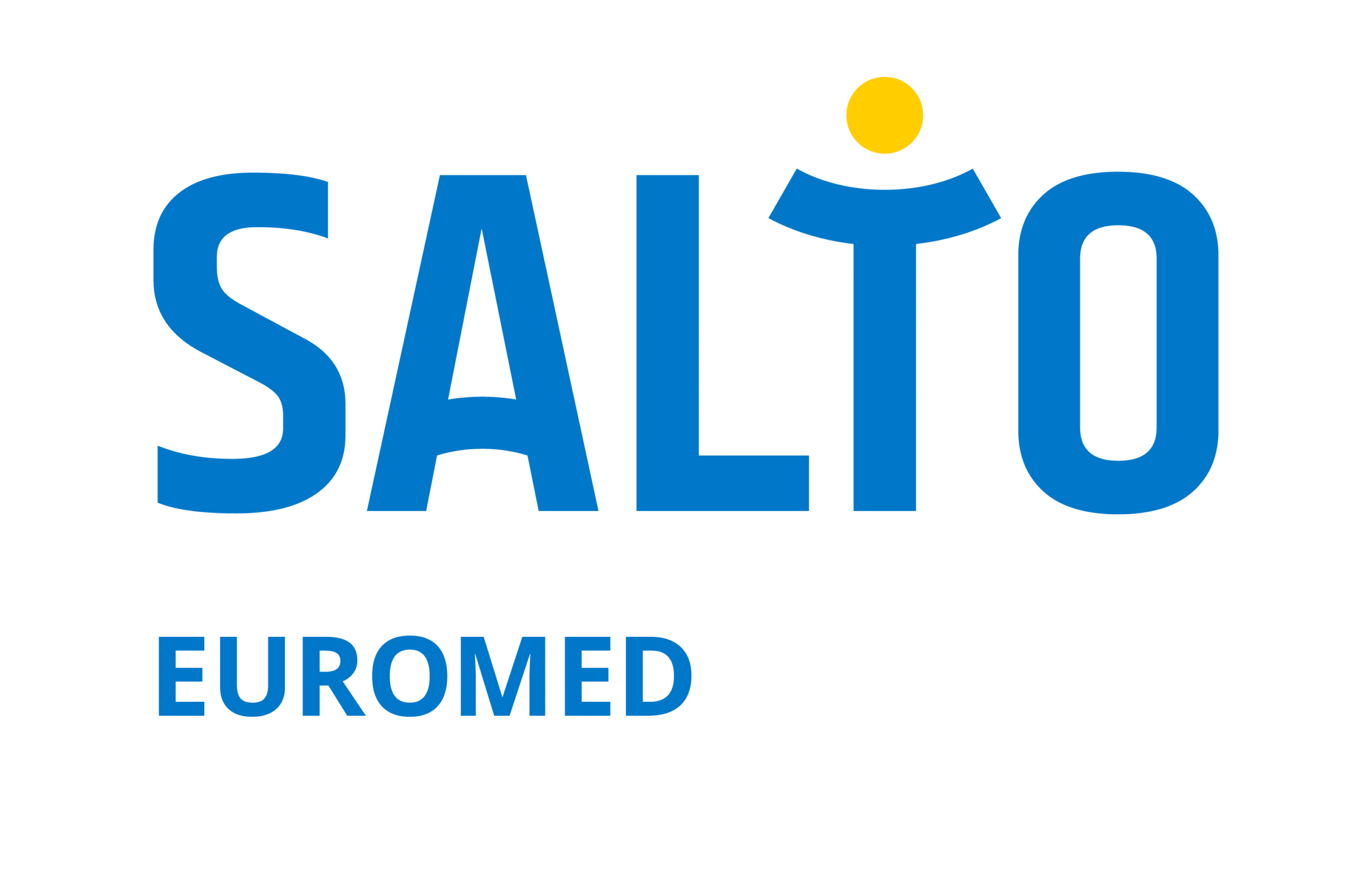Broadening worldview and sharpening adaptability
Bernard Abrignani
EuroMed (Paris)

International youth work was far less developed than today
When SALTO was launched around 2000, international youth work was far less developed than today. Much of the activity was driven by the Council of Europe, with a strong focus on Eastern and South-Eastern Europe. Funding was limited, structures were loose, and the European Commission wanted to create its own presence alongside the Council.
Back then we shared a pioneer spirit: people were highly motivated and excited to build something new, but resources were scarce and political contexts—especially in the Mediterranean region—were complex. Conflicts, cultural and religious sensitivities, and later terrorism made the work delicate and required great diplomacy. Despite these challenges, there was a strong sense of hope and energy, a feeling of starting from scratch to create opportunities for young people across very different countries.
France was a natural host thanks to its geography and long-standing ties to the region.
The SALTO Euromed Resource Centre was opened mainly because the European Commission wanted a strong youth work link with its Mediterranean neighbours as part of the EU’s neighbourhood policy. France was a natural host thanks to its geography and long-standing ties to the region.
Personally, my motivation was professional rather than political: I already had a plan to create an international training unit within the French National Institute for Youth and Popular Education, and the EU call fit perfectly. Also my background—born in Tunisia, experienced in youth exchanges and work with disadvantaged young people—gave me both cultural insight and practical expertise.
My involvement shaped SALTO Euromed from its beginning. I was there to design the first strategies, built networks across south Mediterranean countries, and developed hallmark activities such as training-of-trainers courses and the Tool Fair. I was personally very committed and keeping adaptability helped the resource centre gain credibility and long-term impact well beyond what the Commission initially expected.
Insight into diplomacy and well… crisis management.
My years with SALTO were both a return to the roots and a profound learning experience. Personally, working across the Mediterranean gave me a re-connection with the region of my birth in Tunisia and deepened my ethical and philosophical outlook. I strongly valued seeing individuals change their perspectives and grow through non-formal education, even when political environments were difficult.
Professionally, I strengthened my skills in strategy, international negotiation, and intercultural training, and built a wide network of colleagues across Europe and the south Mediterranean. I also gained insight into diplomacy and well… crisis management, often balancing sensitive political and cultural situations.
While the work demanded long hours and sacrifices in family life, I consider the SALTO experience richly rewarding—broadening my worldview, sharpening adaptability, and confirming my belief in the power of youth work to influence societies, even if institutional change was slower than change in people themselves.
Stay agile and forward-looking.
My main wish is for SALTO to stay agile and forward-looking over the next 25 years. I strongly hope it will:
- Remain adaptable – anticipate new challenges such as climate change, digitalisation, mental-health issues and social cohesion rather than simply reacting.
- Keep innovating in non-formal education – continue to be the leading source of quality methods, tools and reflection for youth work.
- Deepen its reach and impact – make resources more accessible and relevant at grassroots level, not just for policymakers or experts.
- Foster intergenerational links – involve both younger and older generations as Europe’s demographics change.
- Strengthen the European youth-work community – maintain strong connections between youth workers and stakeholders so that practice and policy grow together.
By the time the European Commission launched SALTO in 2000 I had plenty of experience already
My name is Bernard Abrignani. When we had been creating SALTO 25 years ago, I was already in my late forties, with the experience of working with young people since I was 15. In these old times, I have worked as a teacher for children with disabilities, then became a school director, educational adviser in the French Ministry of Youth and Sport, and then a head of international relations at the French National Institute for Youth and Sport. By the time the European Commission launched SALTO in 2000 I had already led many youth exchanges and international projects and was ready to create the SALTO Euromed resource centre.
Today I’m officially retired but still very active. With my wife we run a small guesthouse in the French Alps. I also serve as first deputy mayor in our mountain village, where I develop social and educational initiatives and assist the youth council. I see myself as someone who remains adaptable and committed to community, using decades of experience to support both young and older generations.

